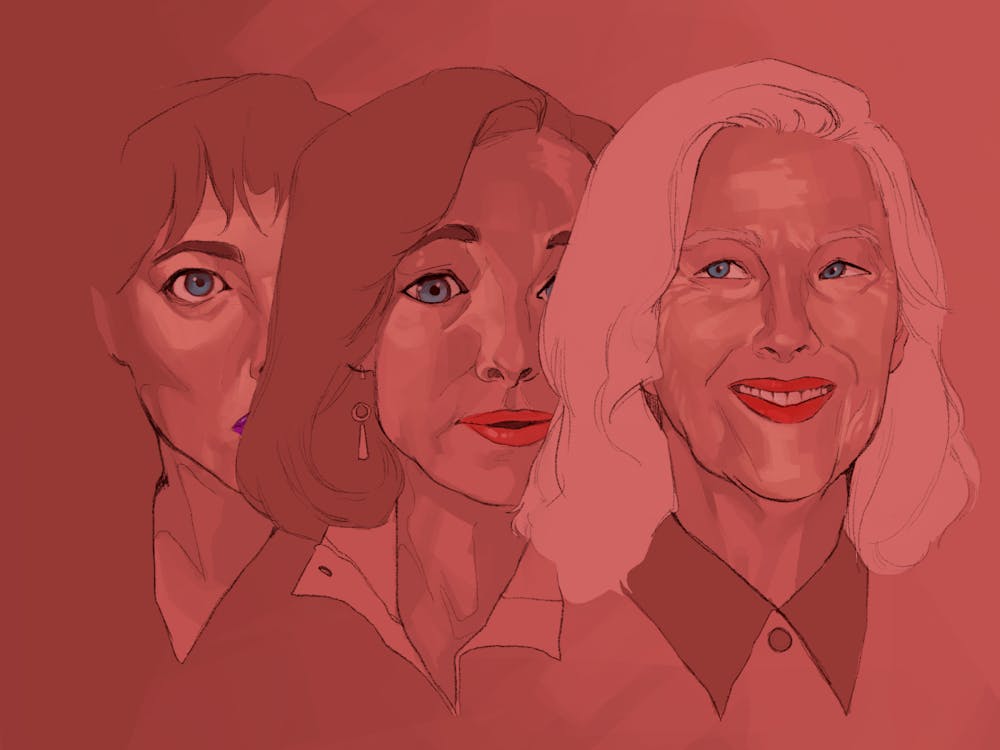Recently, a TikTok of Catherine O’Hara recreating an iconic scene from Home Alone 2: Lost in New York has been going viral. It features a clip from this summer's virtual Ferris Bueller’s Day Off reunion, as featured on Josh Gad's John Hughes tribute.
This raises a few questions. First of all, why is this clip just now going viral? This could be due to slow internet traffic—it’s been a pretty busy year, to say the least. But more importantly, why does this seem to be coming as such a shock to people? It appears as though many television viewers, especially younger ones, are just now connecting O’Hara’s role as Moira Rose from Schitt’s Creek with her previous filmography. As it turns out, O’Hara and Eugene Levy—her Schitt's Creek TV husband—have not only often performed together, but also have impressive and extensive careers of their own. Here are some highlights:
‘Godspell’
In 1972, a Toronto production of the musical Godspell opened, featuring local performers. This production launched the careers of numerous famous comedic actors, including Victor Garber, Andrea Martin, Gilda Radner, Martin Short, Dave Thomas, music director Paul Shaffer, and a college–aged Eugene Levy. At the time, Gilda Radner was dating Catherine O’Hara’s brother, and O’Hara, then a high–school student, would often attend the shows and cast parties. Thus began not only the friendship and professional relationship between O’Hara and Levy, but also a group of performers that would star at ‘Second City’ Toronto.
Second City Toronto and ‘SCTV’
The Second City is an improvisational comedy training center and theater, originally located solely in Chicago. In 1973, the Toronto theater opened, and in ’76 its talented cast began performing on the television show Second City Television (SCTV). The series portrayed various “shows” and behind–the–scenes antics at the fictional SCTV network. SCTV was beloved, and held a similar cultural position to early Saturday Night Live. Levy and O’Hara wrote and performed alongside, once again, Andrea Martin, Martin Short, and Dave Thomas, as well as John Candy, Joe Flaherty, Rick Moranis, and Harold Ramis. Both performed memorable characters and impressions, such as Levy’s host of the fictional game show “Half–Wits” that eventually inspired SNL’s “Celebrity Jeopardy”, or O’Hara’s Brooke Shields.
Christopher Guest–Directed Mockumentaries
Many know the actors from their frequent pairings together in Christopher Guest’s mockumentary–style films, which Levy helped co–write. It's evident that their background in improvisational comedy from Second City led to some of the funniest quips, oftentimes in improvised moments. Case in point? Best In Show (2000), which focuses on competitors at a prestigious dog show, and A Mighty Wind (2003), which centers on bands reuniting at a memorial concert for a folk music producer.
Levy and O’Hara’s performances in A Mighty Wind, paired with a poignant folk soundtrack, make it a uniquely successful blend of hysterical comedy and excellent storytelling. Both also appear in other successful projects such as Waiting For Guffman (1996) and For Your Consideration (2006), showing that their on–screen chemistry has greatly added to the success of any project they’ve appeared in.
Film Careers
Both actors have also successfully pursued independent careers in Hollywood films. O’Hara “peaked” somewhat earlier, in films such as Nora Ephron’s Heartburn (1986) and the aforementioned Home Alone films (1990 and '92). She also worked on several projects by Tim Burton, including Beetlejuice (1988), The Nightmare Before Christmas (1993), and later Frankenweenie (2012). Levy's career was revitalized with the American Pie films, coinciding with the Christopher Guest films, where he played the awkward father of the even more awkward Jim.
‘Schitt’s Creek’
When Levy and O’Hara reunited once again as the patriarch and matriarch of the Rose family in Schitt’s Creek, the sitcom co–created by Levy and his son Dan, the interest of comedy fans all around the world was piqued. While the show’s rise to fame and popularity was slow at first, it has become a smashing success, and even swept the Emmys this year for its final season. O’Hara’s “Moira” has become an icon for her strange voice, wigs, and extensive vocabulary. Longtime fans of Levy still are wrapping their brains around the excellent job the character actor has done—finally—at playing the straight man.
Ultimately, I love Schitt’s Creek as much as the next woman—it’s hilariously stellar. But if you’re forgetting the rest of these two performers’ impressive careers, especially their projects together, you’re missing out on some of the most outstanding comedy of all time.







